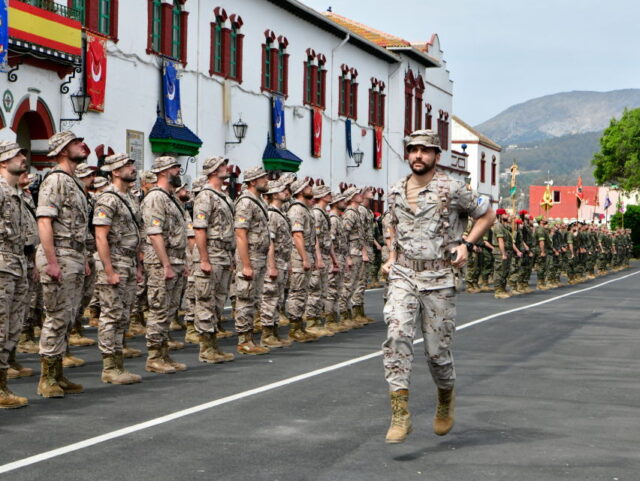A top Eurocrat has lashed out at Donald Trump’s comments on defence, despite his own country being the worst-performing major NATO member state in terms of military spending.
NATO “cannot be an a la carte military alliance”, Spanish socialist politician Josep Borrell said in response in reply to an anecdote related by U.S. presidential candidate Donald Trump at the weekend.
While Trump has strong past form on improving the state of the NATO alliance by illustrating the potential consequences of the majority of its members not meeting their own treaty obligations, as noted by the UK’s Times some have responded by treating his comments literally, rather than as a “wake up call”.
Responding with outrage, Eurocrat Borrell appeared to accuse Trump of precisely what his native Spain is guilty of. He said, per AFP: “Let’s be serious. NATO cannot be an a la carte military alliance, it cannot be a military alliance that works depending on the humour of the president of the US… It exists or it not exist”.
A La Carte, taken to mean picking and choosing what parts of the alliance suits a nation but ignoring the rest could be argued to perfectly describe Spain’s involvement with NATO, which benefits from collective defence but does comparatively little to contribute to it.
Spain spends just 1.26 per cent of GDP on defence, well short of the two per cent baseline required by the NATO treaty as a contribution to the common defence of all members. Indeed, the only NATO states that spend less as a proportion of their economies are Belgium — roughly the size of the U.S. state of Maryland — and the micro-nation Luxembourg, a highly economically developed grand duchy of just 650,000 people living in 1,000 square miles.
President Trump had said last week: “You didn’t pay? You’re delinquent?… No I would not protect you. In fact, I would encourage them to do whatever the hell they want. You gotta pay. You gotta pay your bills.”
The United States has underwritten the defence of Europe for decades, leaving many European nations feeling they can run their defence budgets down to well below alliance treaty obligation levels. Of the major European nations, only Poland and the United Kingdom ‘pay their share’.
Nevertheless, Borrell was not alone among EU figures to lash out at Trump, with top Eurocrat Guy Verhofstadt, whose home country of Belgium paid even less into NATO than Spain at 1.13 per cent last year, joining the chorus of outrage.
Verhofstadt claimed that the comments from the presumptive Republican nominee — whom he referred to as the “next president” in a tacit admission that he believes Trump will prevail over Joe Biden in the election — demonstrated the need for an “EU Army”, despite such a military force presumably requiring EU states to pay even more towards defence than the mere two per cent of GDP obligation for NATO.
The key strength of NATO is the credibility of its deterrent, which depends on article five of its charter, a declaration that an attack against one alliance member is an attack on all. The two-per-cent defence spending floor is part of that deterrent, as it makes clear to any potential adversary that the promise of 30 NATO states coming to the aid of anyone attacked is a serious consequence.
The failure of the majority of NATO members to meet that obligation, which weakens the alliance while piling more responsibility and expense on the United States, has been a long-term concern of Donald Trump, who made improving the situation a key part of his presidency. He was criticised then for weakening NATO by pointing out its flaws and threatening retribution if they weren’t resolved but was later praised by NATO boss Jens Stoltenberg for having encouraged the many members not lifting their weight to step up.
Stoltenberg has been a moderating voice in NATO in recent weeks amid alarming calls from some top military figures to prepare for a major war in Europe but nevertheless has continued to preach the importance of being prepared for war as the most effective means of deterrence.
Stoltenberg said last week: “The economy and industrial strength of the West far dwarfs that of Russia. So we have the means to surpass Russia in both production and investment… [but] Deterrence only works if it is credible. As long as we invest in our own security and remain united, we will continue to deter any form of aggression.”

COMMENTS
Please let us know if you're having issues with commenting.